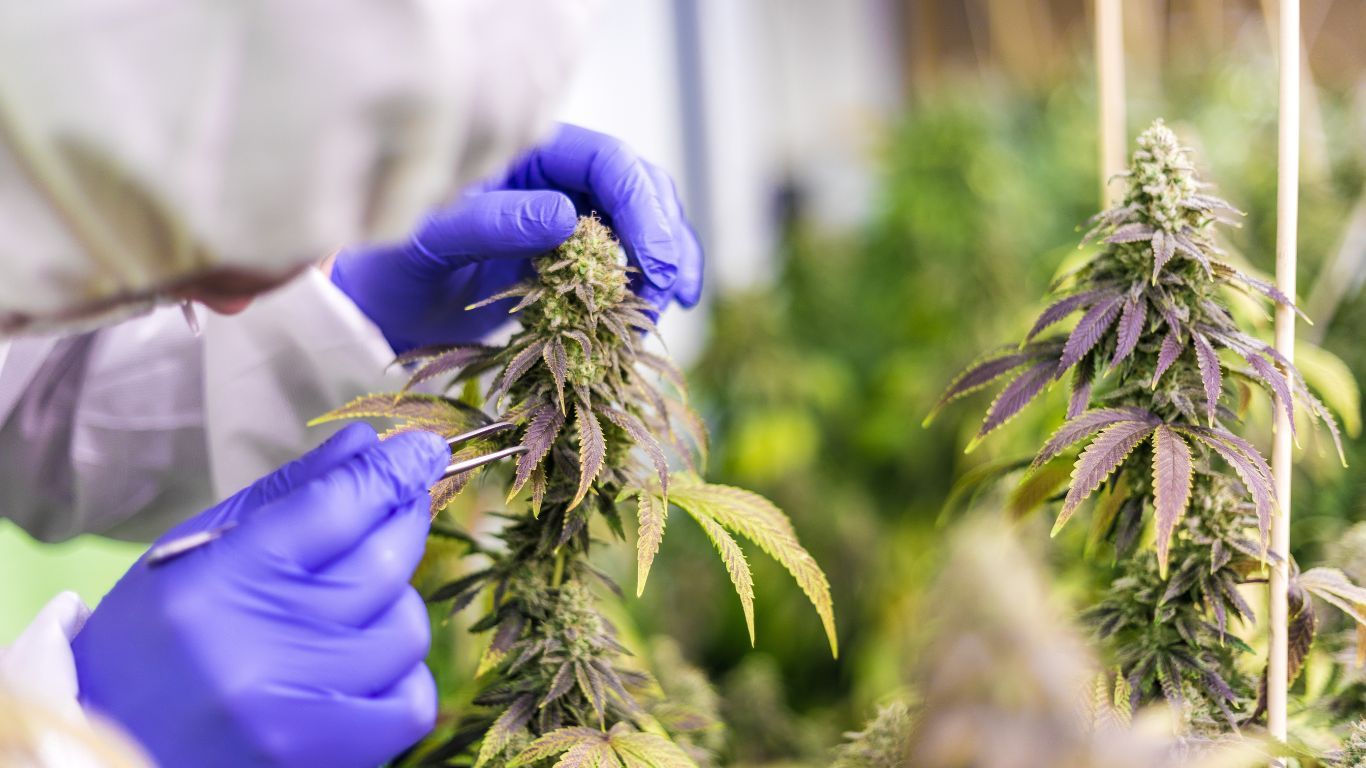
Despite having government approvals and millions of dollars in funding, clinical trials involving cannabis are being delayed in Canada, some by several years, due to an unintended consequence of legalization.
The reason? A lack of acceptable cannabis products.
To be used in clinical trials, cannabis products must be certified GMP, which stands for Good Manufacturing Practices. However, most cannabis produced in Canada — including from the medical cannabis stream — is certified GPP, or Good Production Practices. GPP is not necessarily inferior cannabis compared to GMP, but there are fewer checks, balances and quality-assurance protocols in place, making GPP cheaper to produce.
Therein lies the rub, says Dr. Lauren Kelly, an associate professor of pharmacology and therapeutics at the University of Manitoba and the scientific director of the Canadian Collaborative for Childhood Cannabinoid Therapeutics, or C4T.
Kelly received funding in 2019 to conduct clinical trials looking at whether cannabinoids can be safe and effective for treating adolescents with chronic migraines who have had at least three available therapies fail.
It wasn’t until June 2024, five years later, that she was able to start screening participants, as she required an institutional cannabis license and had to source an acceptable GMP cannabis product.
“These are kids who aren’t going to school, who can’t have any social life,” she said. “These are kids who are suffering and not responding to treatment … It’s been a huge challenge for us explaining to families why we have been so slow to get the trial open.”
Kelly has two other clinical trials involving cannabis, which are approved and have received more than $2 million in funding from places like the Canadian Institute for Health Research (CIHR) and the Canadian Cancer Society. Still, procuring the right products and regulatory documentation has been slow.
Prior to legalization, there was a robust medical cannabis market, and several producers met the GMP standard. That level of production has largely gone away post-legalization, mainly as a way of reducing costs, as many companies fight to stay afloat.
“Similar to other clinical trials studying drugs, we have to submit what is called an Investigator Brochure for cannabis products, basically a manual containing all the information we know about these drugs, how does it work in animals/humans, safety including things like reproductive toxicity, essentially all the evidence that gets submitted for drug development,” said Kelly.
“For cannabis products, licenced producers do not need to do any of these pre-clinical studies on their products to sell them. The CBD cannabis products available at the recreational store down the road or available through the medical cannabis stream have not been specifically tested in pre-clinical research studies. This makes creating product specific Investigator Brochures, that are required for confirmatory clinical trials, impossible for the very same cannabis products people are already using and want better evidence for.”
Kelly says a handful of producers meet the GMP standard, including MediPharm Labs, which several Canadian researchers are working with.
“They are a mom-and-pop shop, they have been keen to collaborate but don’t have the capacity to do all of different cannabis products or regulatory documentation for the studies that are required,” she said.
One side note: what most Canadians consider to be a cannabis prescription is actually an authorization to possess cannabis. An actual prescription would have dosage information — how much to take, how often, and by what method. One of the goals of clinical trials is that with better evidence on how and when to use these products safely, people will one day be prescribed cannabis with a drug identification number (DIN), which a health plan can cover.
“How do you eventually get coverage for a drug? You start with the pre-clinical pathway. You produce a GMP product, you put it into a clinical trial, you show the efficacy, and Bob’s your uncle. That’s the path we’re on and that’s where we haven’t gotten to as of yet,” said Dr. Hance Clarke, the director of pain services at Toronto General Hospital and an associate professor in the Department of Anesthesia and Pain Medicine at the University of Toronto.
Clarke also received funding years ago for a clinical trial investigating whether cannabinoids are safe and effective for treating osteoarthritis. That trial only recently began screening participants, and Clarke hopes clinically tested, plant-based medical products will be available for prescription within the next decade.
“By early 2030s, current efforts are likely to lead us to DIN products with a CBD label and with a THC label in North America. The FDA is already asking for products that might lead us down that path,” he said. “Companies have now figured out, ‘We have to do these studies from a GMP perspective.’”
One way of speeding up that process, says Kelly, would be for Health Canada to allow researchers to use a cannabis product monograph (similar to the European model) instead of product-specific Investigator Brochures, or to incentivize producers to be certified GMP and to conduct pre-clinical studies on their products.
“The public also expects that this research is getting done, they expect answers,” she said. “The government has basically said, the whole point of (legalization) was to protect health and promote health and safety, but they haven’t actually created a pathway that allows us to do that for patients and families.”
In a statement, Health Canada says it recognizes the difficulty in sourcing products suitable for clinical trials.
“Health Canada is currently examining the recommendations in the recently published Legislative Review of the Cannabis Act: Final Report, which includes the recommendation related to increasing Canadian researchers’ access to quality cannabis that meets the requirements under GMP to conduct clinical trials,” it read.
“As the report noted, this remains a key barrier as researchers identified difficulty accessing cannabis products manufactured according to GMP for clinical trials and is currently being assessed by Health Canada.”
That report says, “public investment may be required to make meaningful advances in research on the therapeutic uses of cannabis.”
“The Government of Canada has an opportunity to encourage researchers to undertake studies on the medical use of cannabis by making research priorities clear and providing targeted funding opportunities,” it reads. “Cannabis, in many different forms, is currently used to treat a range of symptoms and conditions, and prioritization of research needs is important. To that end, we encourage Health Canada to support a transparent process to identify the specific potential therapeutic applications of cannabis that would benefit most from additional study.”













